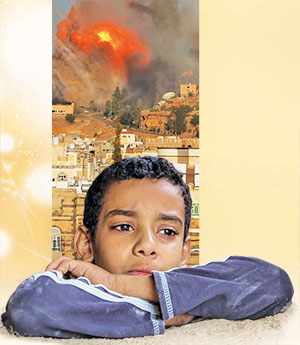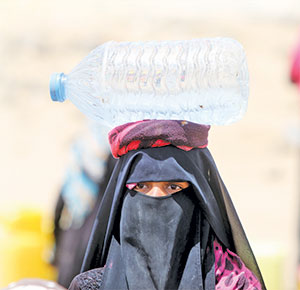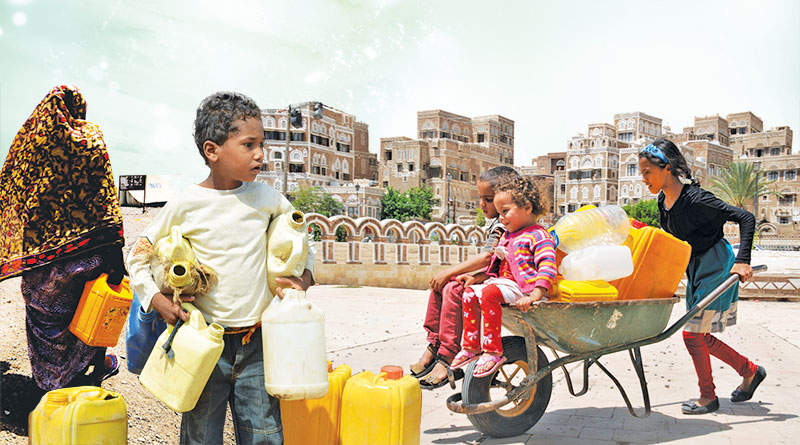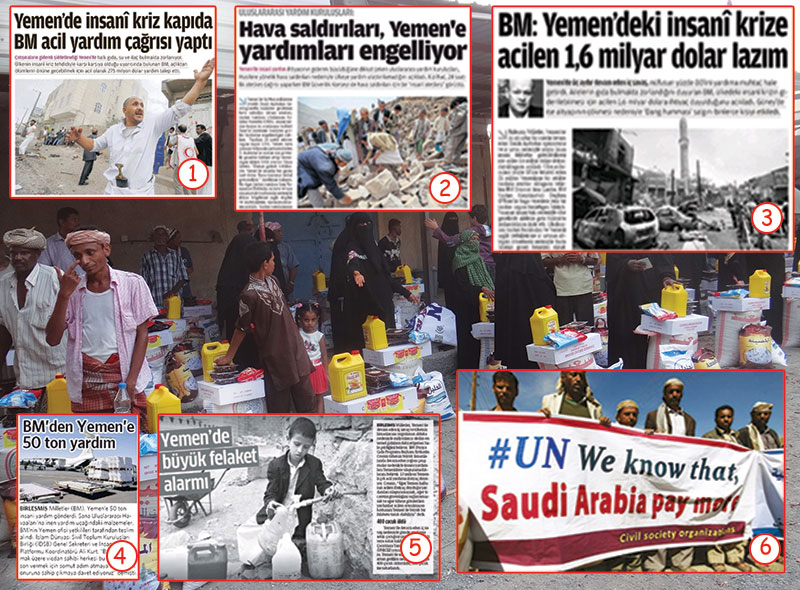Airstrikes against the Houthi Ansar Allah movement in Yemen by the Saudi-led coalition, originally made up of UAE, Bahrain, Kuwait and Qatar and later joined by Gulf Countries, Egypt, Jordan, Morocco and Sudan, is continuing at full-speed. In addition to this constant pounding by the coalition, bloody clashes between the armed groups in the country are also underway. Forces of the ousted President Ali Abdullah Saleh and Houthis fight the militia of the South Yemen People's Committee and the forces supporting the President Hadi.
 |
 |
According to Jens Laerke, the spokesperson for the United Nations' Humanitarian Office, many civilians lost their lives in the airstrikes that affected 18 of 22 Yemen's governorates, with the most casualties in Aden, South Yemen.
Joel Millman, the spokesperson of the International Organization for Migration (IOM), said that at least 40 people lost their lives as a result of the airstrikes on the Al-Mazrak refugee camp a couple of weeks ago and many innocent people were injured. Witnesses reported that the ambulances had difficulty in reaching the area due to the ongoing airstrikes.
The day after this first attack, 35 people, including 15 civilians, lost their lives after a Houthi checkpoint, 140 km south of Sana'a was hit. In another strike a yoghurt factory was struck in Al Hudaydah district and 37 workers died and 75 people were heavily injured. The coalition forces claimed that the Houthis used the factory as ammunition storage.
Laerke, during a press conference held in the Geneva Office of the UN, explained the death toll reported in 20 days: '731 civilians lost their lives in the fights that took place from 19 March to 12 April in Yemen. 150 thousand Yemenis were displaced during the same period.'
 |
Even if the civilians manage to escape the civil war unscathed, they are facing severe poverty. Life conditions deteriorate every day as people struggle with severe hunger.
United Nation's Food and Agriculture Organization (FAO) recently released a report showing the scale of the humanitarian disaster Yemen faces. The report explains that the clashes caused the marketplaces to shut down in big cities, causing price surges. The operation coincided with the agricultural season, which is critical for food production, threatening the harvest and the necessary preparations for new crops.
As a result of this, 11 million people face starvation and 5 million people aren't able to get their daily food needs. The statement says that 16 million out of the total 26 million Yemenis are being deprived of potable water resources and are in urgent need of humanitarian assistance whereas 850,000 children are suffering from malnutrition.
After UN called for $274 million for urgent humanitarian aid for 7.5 million people in Yemen on April 17, Saudi Arabia pledged $274 million dollars. Needless to say, this amount is only a small fraction of the billion-dollar cost of the 'Operation Decisive Storm' led by Saudi Arabia, which caused destruction in Yemen.
The lives of 26 million people in Yemen and their rights are much more important than the political goals of the neighboring countries. For this reason, it is imperative that the regional countries that started a race for power and influence in the region over Yemen stop this approach immediately.
It is obvious that Iran and Saudi Arabia, or the coalition countries that deem impeding this political issue in Yemen through strikes cannot accomplish any resolution through policies of bloodshed or violence. Military methods and air bombardments mostly result in loss of civilian life and damage to the innocent, thereby could never establish the loving and peaceful atmosphere that would remove this social strife in Yemen.
The situation became especially worrisome after the coalition's spokesman Brigadier General Ahmed Asiri made the following statement: 'This effort needs patience. Our possibilities and time are not limited, so we are not in a hurry. We will continue the operation until we reach our goals.'
 |
| Life conditions deteriorate every day in Yemen as people struggle with severe hunger. |
Al-Asiri saying, 'Our possibilities and time are not limited, so we are not in a hurry,' doesn't seem to understand that every second the campaign goes on, Yemen will be immersed more in blood and fire, the country will be destroyed more, there will be more civilian deaths and the surviving people of Yemen will be facing more difficulties.
For this reason, it is of paramount importance that the country leaders act sensibly and reasonably and without ever losing time should stop military campaigns and clashes to urgently announce a ceasefire.
It was clearly seen many times over the decades that military operations never solved any problems anywhere in the world, but only exacerbated the problems. Therefore, the only solution for Yemen is holding a democratic election open to all parties in the country, as a result of which a peaceful administration agreeable to everyone is established.
 |
| 1. Imminent humanitarian crisis in Yemen, and an urgent call from the UN for aid - Daily Zaman, 18.04.2015 |